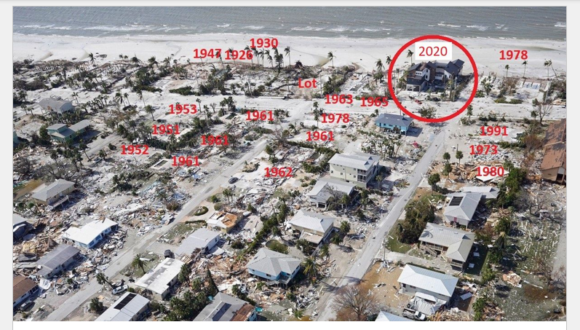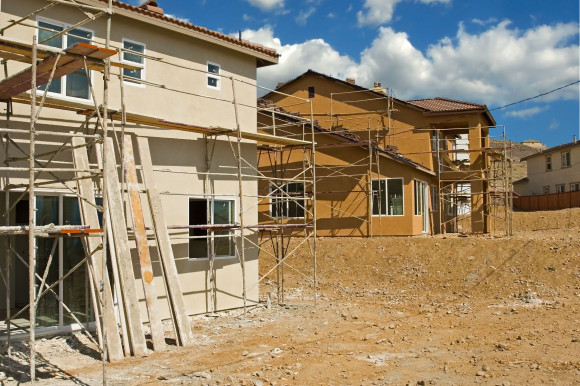Regardless of where you call home, we all face growing risk of damage related to extreme weather. Hurricanes, wildfires, winter storms, tornadoes and hail pose increased risk for homes, businesses and communities across the country.
According to the National Oceanic and Atmospheric Administration (NOAA), in 2022 there were 18 weather/climate disaster events with losses exceeding $1 billion each to affect the United States. These events included one wildfire event, one drought event, one flooding event, two tornado events, three tropical cyclone events and nine severe storm events. Overall, these events resulted in the deaths of 342 people, $165 billion in damage and had significant economic effects on the areas impacted.
Stark lesson from Hurricane Ian
Unfortunately, we had a recent reminder of the devastation severe weather events can inflict on our customers and communities with Hurricane Ian.
As I read reports of the historic damage caused by the hurricane, I came across this photo in an article in The Insurance Journal.

The photo shows several buildings which had been destroyed by Ian’s 200+ MPH winds. Only one building remained – one which had been built in 2020 to Florida’s new building standards. This sobering photo shows how stronger building codes can play a vital role in helping homes and businesses in CAT-prone areas survive future storms.
Building codes matter
Building codes which require construction companies to erect buildings that can withstand stronger weather events are smart, sensible public policy. It is for that reason that Nationwide has and will continue our efforts to raise awareness and advocate for strong, enforceable building codes at all levels of government.
We call on our elected officials and policymakers to require buildings to be built to IBHS fortified building standards.
We know, based on more than 20 years of scientific research, these enhanced requirements deliver superior performance protecting people and their property during severe weather events. While stronger building codes won’t mitigate all damage and devastation, they will dramatically lessen it, which would benefit all Americans.
As we’ve learned, wide-spread catastrophic damage related to climate change is now the norm. It’s not a matter of IF a severe weather event will happen – it’s a matter of WHEN and WHERE.
And as we’ve seen the past several years, the WHERE is no longer just the coasts. Severe weather is an everywhere issue. Buildings must be made stronger from Alaska to Maine to prevent increased destruction and death.
Agents for change
Nationwide was founded nearly 100 years ago on the principle that we can accomplish more together than we can alone. That statement has never been truer than it is today, especially when it comes to the hard work and collaboration needed to strengthen building codes across the country.
For this effort to work, it will require more than just insurance carriers and trade associations reaching out to legislators. Insurance agents will play a critical role in getting these laws passed at the local level. Agents are in a perfect position to help advocate for stronger building codes in their communities. Start today by learning more about fortified building standards.
Was this article valuable?
Here are more articles you may enjoy.



 Judge Awards Applied Systems Preliminary Injunction Against Comulate
Judge Awards Applied Systems Preliminary Injunction Against Comulate  The $10 Trillion Fight: Modeling a US-China War Over Taiwan
The $10 Trillion Fight: Modeling a US-China War Over Taiwan  ‘Structural Shift’ Occurring in California Surplus Lines
‘Structural Shift’ Occurring in California Surplus Lines  Trump’s Repeal of Climate Rule Opens a ‘New Front’ for Litigation
Trump’s Repeal of Climate Rule Opens a ‘New Front’ for Litigation 


